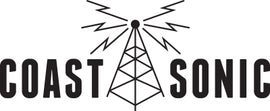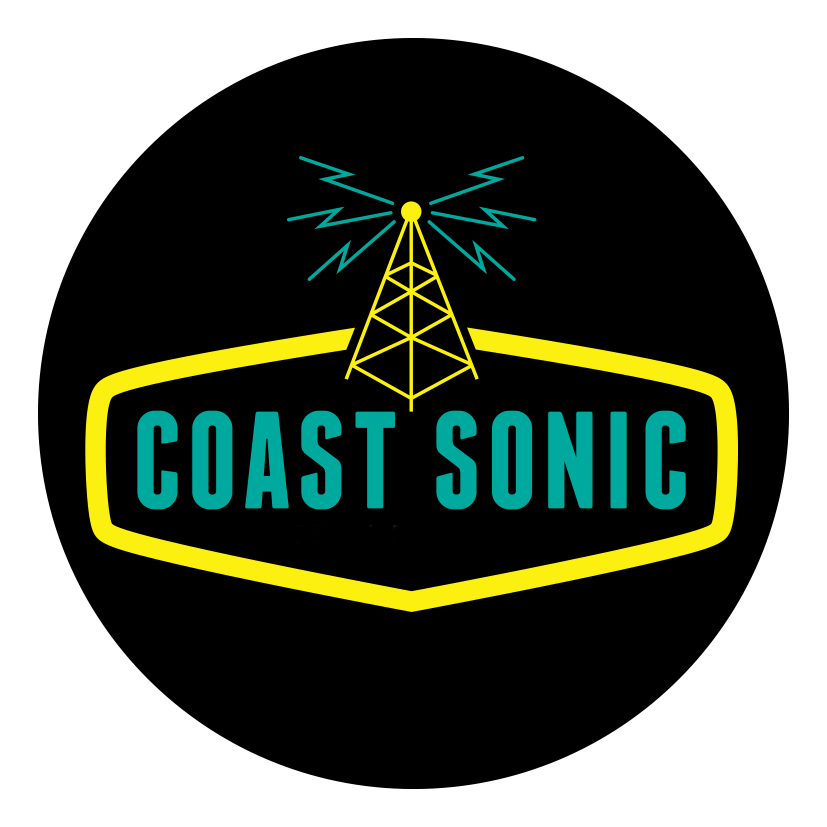
Sound Check is a new feature where we sit down with some of the newer brands in the pedal world and find out a bit about the how and why of how they came to be.
For this installment we've caught up with Marc Widmaier, the brains behind Germany's Ohmless Pedals. One of the first things we saw from Ohmless Pedals was actually a gut shot photo of their popular Solana Overdrive, we were immediately impressed but the quality and cleanliness of the build. Some serious attention to detail was evident in all aspects of construction and it resulted in gorgeous, rich tones - exactly what you'd be hoping for in a new brand. There are a lot of new brands popping up all the time but in our opinion it's the ones who really put the quality first and foremost that we want to be involved with. Ohmless Pedals delivers high quality German engineering at musician friendly prices.
Thanks for taking the time to talk with us Marc, let's get right to it. Starting a pedal company requires equal parts of two passions so let’s start with the proverbial chicken or the egg question, which came first for you; guitar or electronics?
Guitar. When I was 7 or 8 years old I found an old Martin Western Guitar at my grandparents house. Ran around the house for days shredding awful sounds.
Were you hooked right then and there or did it take awhile before it took over your life?
No - I was actually playing accordion by that time and only shredded ugly sounds the weekends I was with my grandparents. But I started to like the instrument more and more and put a new set of strings on it when I was 13 and finally took my first lesson.
So at what point did the passion for electronics enter the picture, how did you discover that?
That was about four years ago. At that time I was still studying and didn't have the money for quality boutique pedals. I played through a Boss ME-25, it wasn't the best but all I could afford. Three years ago, I was visiting a friend who had the biggest board ever and the sounds coming out of his amp made me stop using the ME-25. I started looking into analog schematics and since I generally love building stuff I just gave it a shot and started with a simple clean boost.

Did you take any courses or formal training in electronics once you got involved or was it more the school of trial and error?
It was a combination of both. I did two semesters science of electricity during my studies but also had to learn of numerous mistakes along the journey.
So what was it that made you decide to get into building pedals as opposed to taking a different route as they may have taught in school?
Well - my main job is still as an automotive engineer - that’s what I went 6 years to university for. I started building pedals to compensate for the lack of technical/practical work at my job, since I do project management.
So what is your vision for Ohmless Pedals? What do you see as Ohmless’ place within the world of pedals?
My vision is to be able to work full time for Ohmless and even have a few employees. My dream is to build pedalboards and guitars as well - but we’ll see if that’s going to come true. The aim is to show players and builders that wiring and design are also important. I actually opened up a few pedals before I started building and was shocked about what I saw. Pure chaos

So there’s a real emphasis on build quality being a foundation for great tone with Ohmless, would that be fair to say?
Yes that sums it up well. Looking at the first wiring of the Lorena for example and how it looks now, there's a real progress.
I have to say that’s quite modest as anyone who has seen the insides of an Ohmless Pedal is quite familiar with the attention to detail.
In addition to making two top notch overdrives and a fantastic compressor you recently introduced a full line of utility pedals. What can you tell us about these?
I developed those utility pedals because Ohmless is not just about delivering one pedal that sounds great but about taking into account all the little aspects which lead to great tone. The Workbench Series is just about that: starting with the Valve, which enables you to use two guitars with different output signal strengths on the same pedalboard without having to adjust your drives/compressors. How? We built in a transparent clean boost that is hooked to one of the channels. That's where you plug in the weaker guitar and adjust the level to your guitar with strong signal. Additionally, the Valve is buffered and has a built in splitter to take your tuner out of the chain.
The second pedal is the Plunger, an Op Amp based buffer that makes your signal ready for long signal chains and prevents all tone loss. The Double Plunger simply uses the same circuit as the Plunger, only twice for stereo use. The Hatchet is an Op Amp based splitter, that buffers your mono signal and converts it into stereo, either to run a stereo rig or to separate your tuner from the rest of the chain since some of the tuners out there are not the best for your tone.
The last pedal of the series is the Detonator - a simple clean boost that pushes your signal up to 20dB. Since we always like to give the customer the flexibility to control his sound the way he likes, we've added a tone control knob. That way the Detonator can used as a clean, treble or bass boost for great lead lines.

So the utility pedals are basically here to help solve common issues a player might have. How do you decide what you want to do in regards to the regular line? You have two really great drives out right now - how did they come about and why two?
Having two drives at the beginning was basically a result of asking other players what they would put on their board and was also influenced by myself, since I prefer to have two different drives to be more flexible concerning sounds. I also wanted to offer something for different types of guitars and pickups and it’s always better to give people a choice. Decisions about what we’re going to do in the future are based on customer feedback, opinions of good friends and my personal needs. Every time I’m on stage, I’m trying to imagine what would make my pedalboard sound better and after I talked to my friends, I always know if my ideas are a good way to go or not.
That makes a lot of sense, always good to hear things are “field tested” before being released. So do you have anything on the works regarding upcoming pedals that you want to share or give us a tease at?
I've got a few ideas but nothing that's worth talking about yet sadly. There’s definitely going to be one or two additions to the series this year and of course some improvements to the already released pedals.
We’re looking forward to seeing what’s you’ve got cooking because if it continues the bench marks you’ve already set thus far with Ohmless it’s bound to be great.
Any final advice or words of wisdom for the player out there looking to build their ideal pedalboard?
Well - maybe two things: never underestimate the influence of a good, stable power source for your board and try finding your own tone instead of chasing after the one of other players.
Thanks for talking with us Marc!

